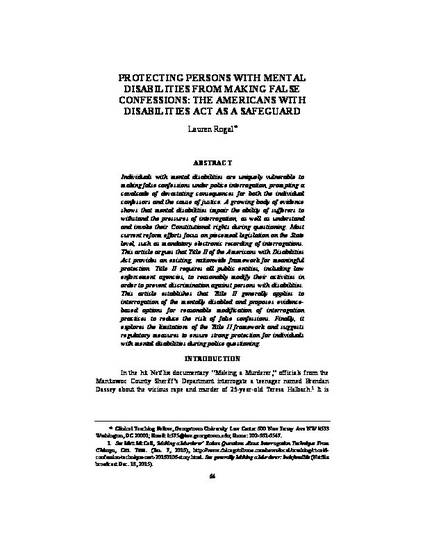
Individuals with mental disabilities are uniquely vulnerable to making false confessions under police interrogation, prompting a cavalcade of devastating consequences for both the individual confessors and the cause of justice. A growing body of evidence shows that mental disabilities impair the ability of sufferers to withstand the pressures of interrogation, as well as understand and invoke their Constitutional rights during questioning. Most current reform efforts focus on piecemeal legislation on the State level, such as mandatory electronic recording of interrogations. This article argues that Title II of the Americans with Disabilities Act provides an existing, nationwide framework for meaningful protection. Title II requires all public entities, including law enforcement agencies, to reasonably modify their activities in order to prevent discrimination against persons with disabilities. This article establishes that Title II generally applies to interrogation of the mentally disabled and proposes evidence-based options for reasonable modification of interrogation practices to reduce the risk of false confessions. Finally, it explores the limitations of the Title II framework and suggests regulatory measures to ensure strong protection for individuals with mental disabilities during police questioning.
Available at: http://works.bepress.com/lauren-rogal/1/
